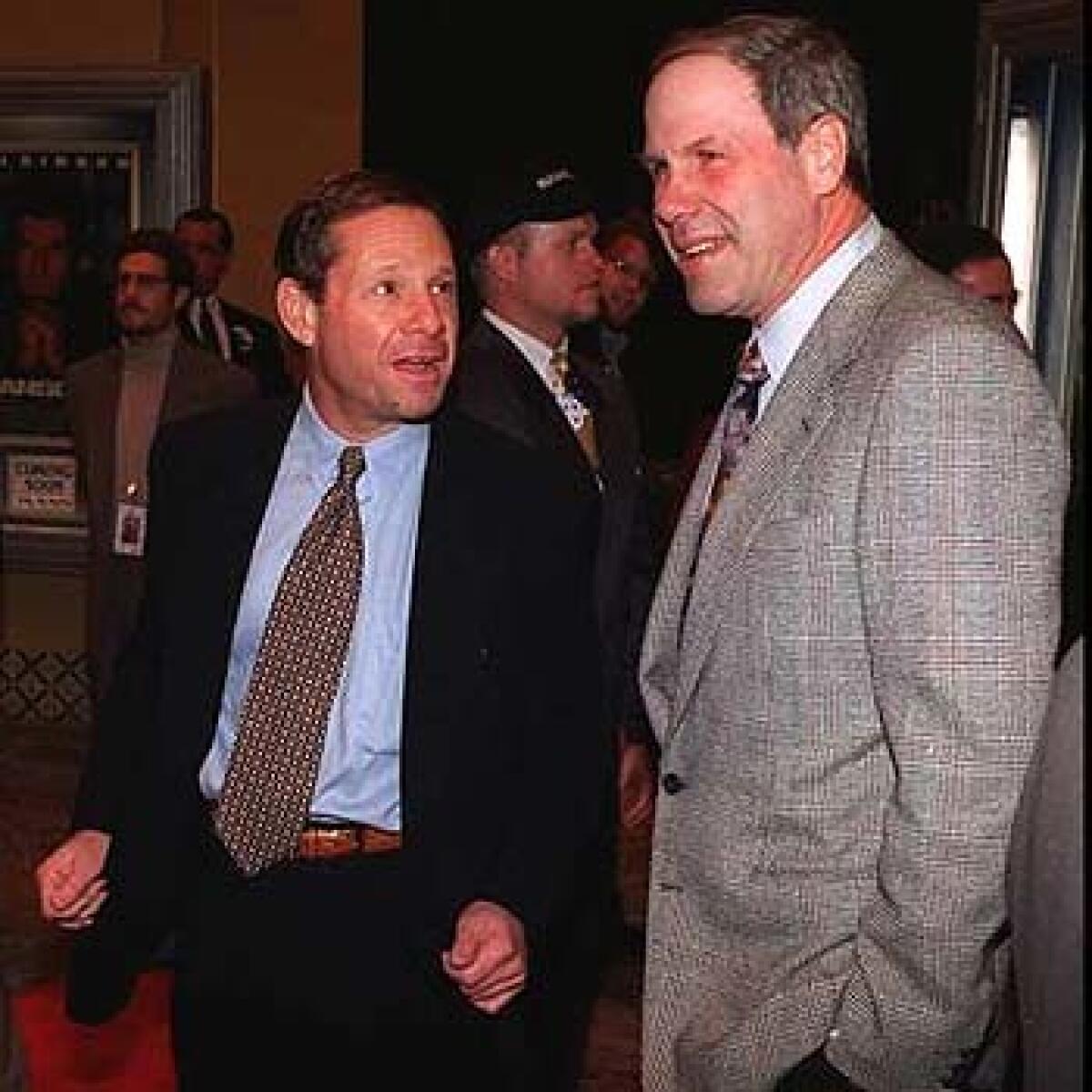Professor: Ovitz’s Firing Without Severance Would Have Been OK

- Share via
GEORGETOWN, Del. — Walt Disney Co. directors would have been justified in firing Michael Ovitz as the company president without giving him a rich severance deal because of “substantial and repeated dishonesty,” a law professor testified today.
John Donohue, a Yale University employment law specialist, said Ovitz’s conduct as president in 1995 and 1996 qualified as “gross negligence” under California law. That would have been reasonable grounds for Disney firing Ovitz “for cause” under his contract, he said.
In a lawsuit filed in Delaware Chancery Court on behalf of shareholders against Disney directors, Donohue addressed what is likely to be the key point in the trial: did Ovitz deserve the “no-fault termination” he was given that allowed him to collect a huge severance package?
A statement released by a spokesman for Ovitz dismissed Donohue’s testimony as being “unfounded opinion” that was based “on nothing more than second and third hand hearsay and gossip. When the actual facts are presented and fairly considered, they will clearly show that there was absolutely no cause to terminate Mr. Ovitz’s employment, and that he was absolutely entitled to accept the contractual benefits he received from Disney.”
When Chief Executive Michael Eisner dismissed him, Ovitz left the Burbank-based company with a package of cash and stock options that plaintiffs lawyers argue was worth $140 million at the time. Ovitz’s eventual take totaled $109 million because some of his options expired.
Plaintiffs lawyers are seeking to have $200 million in payments and interest returned to the company. Insurance companies are likely to foot the bill.
Donohue said questions about Ovitz’s veracity appear in a deposition by Texas tycoon Sid Bass, who for years was the company’s biggest investor. Bass related that Eisner had qualms about Ovitz’s truthfulness even before he hired him.
One incident was the discovery that Ovitz, while Hollywood’s top agent at Creative Artists Agency, hid the ownership and use of a private jet from his own partners there.
Shareholder lawyers are alleging that Disney directors rubber-stamped Eisner’s decision to hire Ovitz and failed to properly oversee Ovitz’s firing.
Both Ovitz and Eisner, once close friends, are scheduled to testify during the trial, which is expected to last a month.
Although Ovitz and Eisner barely speak to each other now, they must prove that though Ovitz’s parting was bitter, he was not fired for gross negligence or malfeasance. Were Ovitz guilty of such behavior, he could have been denied the rich cash and stock option package he reaped.
Based on pretrial depositions, Eisner is expected to argue that he engineered a once-in-a-lifetime coup by persuading Ovitz in 1995 to give up his position as Hollywood’s most powerful agent to become Disney’s second-in-command. At the same time, he must demonstrate that Ovitz’s performance at Disney was flawed — bad enough to cost him his job but not so bad as to cost him his severance.
Ovitz has his own fine line to walk. He is expected to accuse Eisner and other Disney executives of undercutting him. But he too will argue that Eisner acted properly in easing him out, clearing the way for the severance because the arrangement simply did not gel.
Lawyers for Eisner and other directors contend that they acted in the best interests of shareholders by protecting the company from a breach-of-contract lawsuit that almost certainly would have been filed had they denied Ovitz his payout. That, they say, could have cost far more than the severance package.
More to Read
The biggest entertainment stories
Get our big stories about Hollywood, film, television, music, arts, culture and more right in your inbox as soon as they publish.
You may occasionally receive promotional content from the Los Angeles Times.










